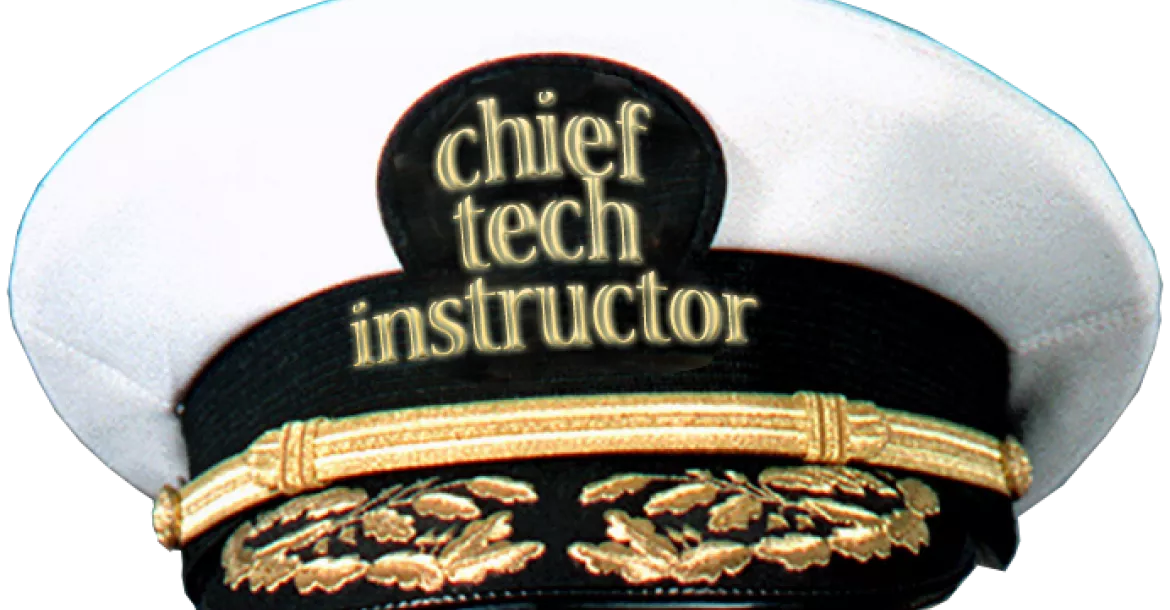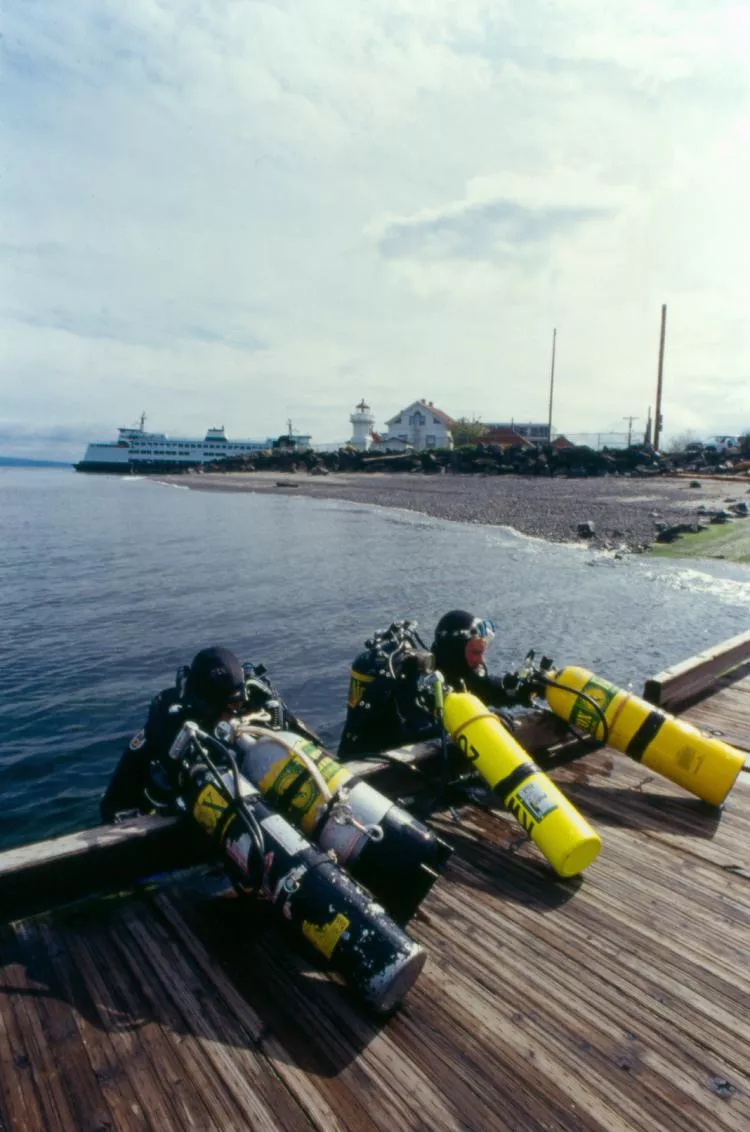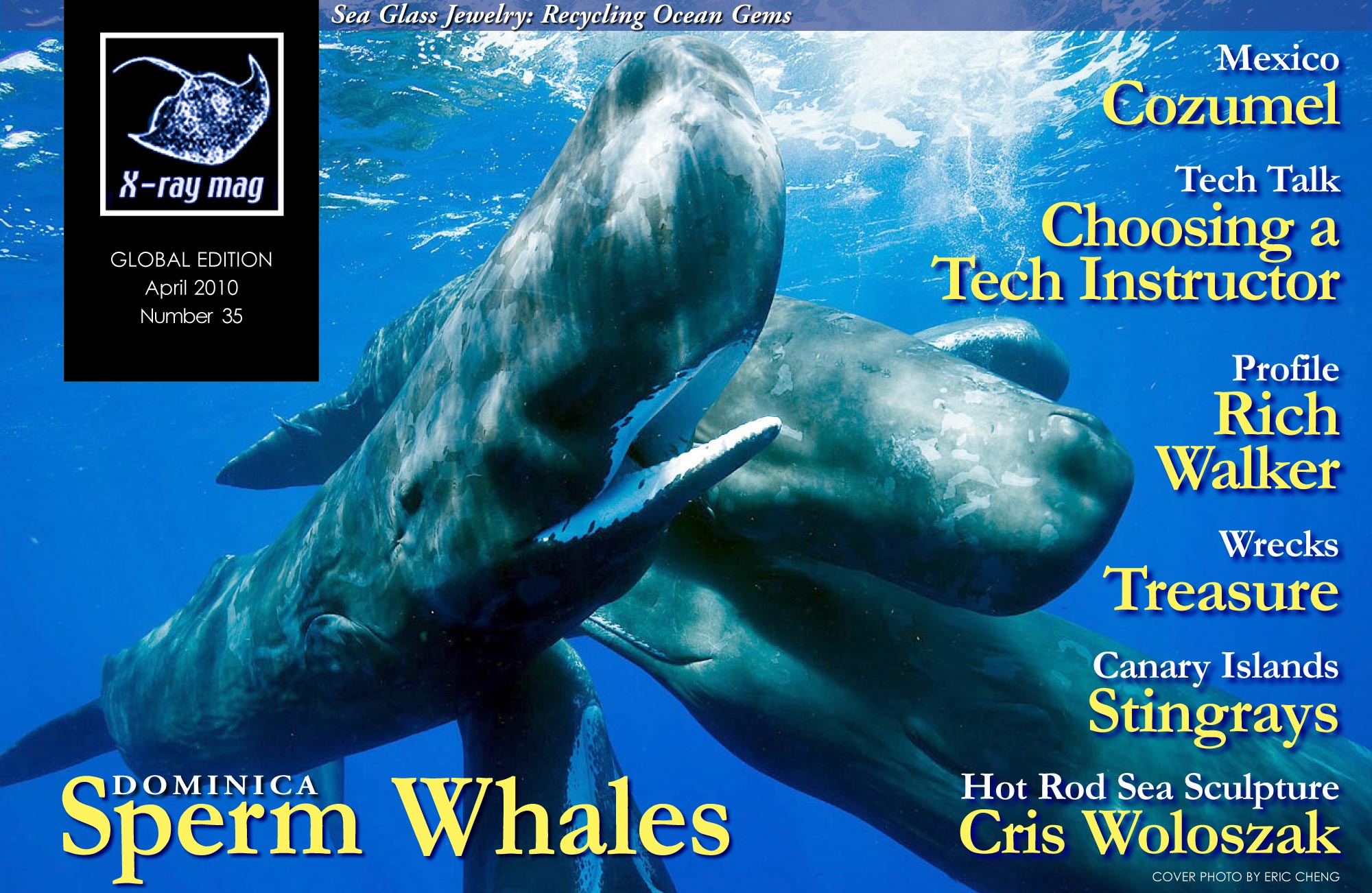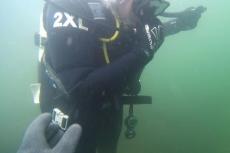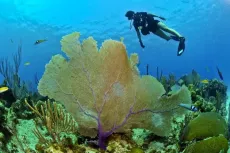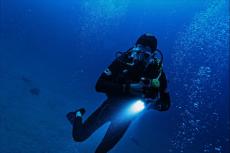As I have grown to be an experienced diver, my standard for choosing an instructor to train or mentor under, has also evolved. When I signed up for my first scuba class, it really didn’t make any difference to me who was going to teach it. The excitement of learning to breathe underwater was the only thing that mattered.
As it turned out, my instructor was a past Executive Director of NAUI and an ex-Navy Seal. It wasn’t until I had some real diving experience to compare my skills to, that I really began to appreciate how well trained I was, and how a good instructor can make all the difference in the world.
Contributed by
Now, I seek only the top (and often hardest) instructor trainers when I require additional training for myself, and I love the challenge. What I have come to realize is that you can be trained by any dive center that offers technical instruction, but for the knowledge to truly stick with you and sink in, the instructor must be good at the craft of teaching.
So, what do you look for when selecting a dive instructor? Even more important, what do you look for when selecting a technical diving instructor? The answer is not as black and white as you might imagine, because an excellent instructor doesn’t have a tattoo on his or her forehead stating “top instructor”. So, let’s take a look at what makes a good instructor and the criteria that you can use to select one. While we will concentrate on technical diving instructors, most of these principles can be applied when selecting any instructor, including recreational courses.
Compatibility
Arguably the most important characteristic has nothing to do with their qualifications; it’s your gut feeling that counts. Plan to meet with your prospective mentor and see how the two of you get along. There’s nothing worse than taking a course from someone you do not like or respect, no matter how qualified or experienced they are. Above all you need to have respect for your instructor, and feel that you have something to learn from them, or continue the search for a different one. This will go a long way in allowing yourself to be receptive to their teachings.
iving experience
Once an instructor is favored, you need to know what diving experience they have. They may talk the talk, but do they walk the walk? Do they do actual dives or are most of their dives with students in a controlled atmosphere? There is something to be said for real-world experience and doing actual technical dives each month. Maybe they send out a newsletter or list upcoming dives on their website.
Some of the most important knowledge that your instructor can teach to you is from the things that went wrong or problems that arose on their personal dives. Learning from another’s mistakes is an important part of the teaching process. So, during your selection process ask the prospective instructor, what is the worst thing that has happened to them on a dive, and we have ALL had things go wrong.
Similar interests
”.“I look for someone with the same interests that I have,””. comments Rob Wilson, a CCR Trimix divers from Marysville, Washington State. “For example, Ron was a no brainer for me. We both share the same interest in wrecks. Come to find out, it’s the same wrecks, too. I also would look for someone who has actually done some dives beyond their training hopefully the dives I’m planning to do.
“I wouldn’t want a “card collector”. A tech instructor needs to go out and actually do the dives he certifying people for. You can always find a “tech” instructor but not many are out doing “tech” dives unless they are doing a class.
”.“For example, we had a Trimix instructor come out on a deep dive with students. The instructor turned out to be a complete disaster. We did have a couple of unforeseen challenges but nothing that could be considered a deal breaker. It is wreck diving after all. This person had no experience outside of teaching. I wonder what kind of divers they will produce with this kind of attitude.””.
Knowledge
Familiarity with the subject matter should be next. No matter how much dive experience they have, a limited knowledge base of the course work is like a car with no tires, it will go nowhere real fast. Does the instructor’s knowledge exceed the course you are about to take. One way is to ask them the highest level they can certify to. Another is to purchase the book beforehand and read it. A good example might be whether they have an integral knowledge of decompression science and algorithms, which is extremely important for deep trimix diving. Ask to see their informational database (books, articles, certificates), which might already be on display in their classroom or the dive center. This will help you in deciding if their education and training in technical diving is adequate to answer any questions you might come up with.
Continuing education
I personally like to know if the instructor is continuing with their own education through additional courses and/or seminars.
Reputation
A solid reputation in the local dive community can also be a valuable consideration. Being well known for their diving prowess is a strong indicator that they know what they are doing. A ‘word of mouth’ recommendation by a previous student is another way to find out additional opinions of how a course was conducted. This should not be overlooked because first hand information might give you an idea if the person feels they received adequate instruction and feels comfortable to continue in that level, or do they feel they were shortchanged.
Teaching experience
Dan Dwarter, another CCR Trimix diver from Washington also believes experience counts;
.What I look for in a technical dive instructor is experience. Anyone can go out and get a certification saying ....

